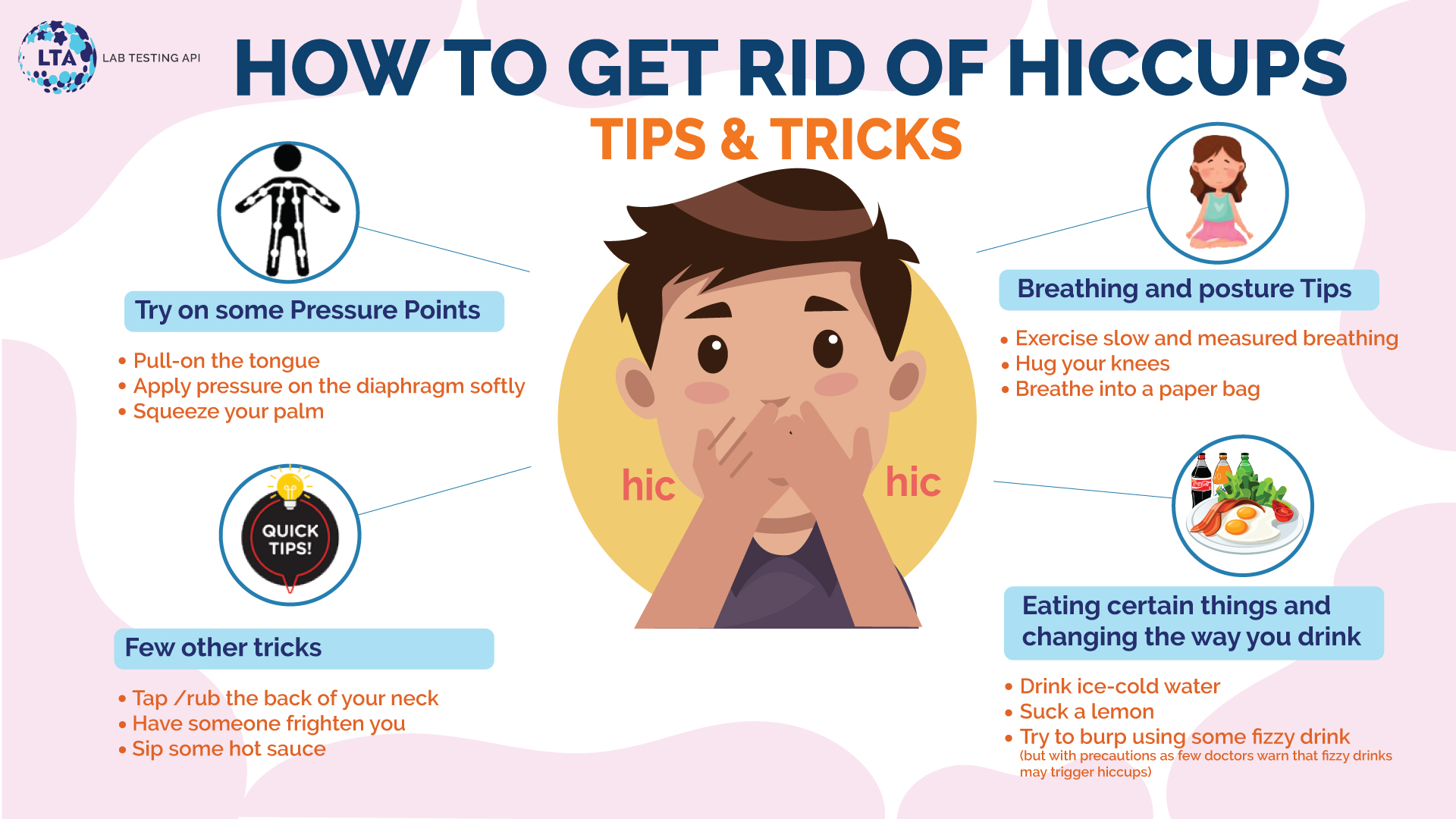Welcome to the second part of our blog series related to Hiccups and how to get rid of them.
Sometimes, somewhere you must have got bouts of hiccups. It is troublesome and annoying. They are usually for a limited period, but continued episodes/bouts of hiccups, however, may indicate an underlying pathologic disorder and calls for immediate medical attention. There are a few tips and tricks that could be attempted to get rid of hiccups, but those are for self-limited hiccups and not for the chronic ones.
The author wants to put a disclaimer that the purpose of this article is not to recommend a treatment for hiccups rather provide a few tips and tricks to get rid of hiccups. Treatment of intractable hiccups often involves drug therapy.
Breathing and posture
Some breathing techniques and few body postures may prove helpful in getting rid of hiccups
- Exercise slow and measured breathing. Interrupt your respiratory system with slow, measured breathing. Breathe in for a count of five and out for a count of five.
- Hug your knees. Sit down in a relaxed place and bring your knees close to your chest and hold them there for 1-2 minutes
- Breathe into a paper bag (not into the plastic bag). Breathing into a paper bag by covering your mouth and nose but not the head with the bag maybe a quick trick to get rid of hiccups.
Eating certain things and changing the way you drink
Eating certain things or changing the way you drink may also help to kindle your vagus or phrenic nerves.
- Drink ice-cold water. Drinking the ice-cold water by sipping it slowly may stimulate the vagus nerve.
- Drink from the opposite side of the glass. Stand up, turn over, and place the mouth on the reverse side of the glass. While bending, slant the glass away from the body and drink.
- Gargle with iced water. Rinse with ice water for 30 seconds. Repeat the process if required.
- Eat some Olives. This seems bizarre but eating green olives may stop your hiccups.
- Suck a lemon. Take a small slice of lemon, keep it on your tongue and suck it like a syrupy.
- Gulp something sweet. Put a pinch of granulated sugar on your tongue and let it sit there for 5 to 10 seconds, then swallow.
- Vinegar mantra. Place a couple of drops of vinegar in your mouth to see the instant relief.
- Burping. This seems weird, but you may consume a fizzy drink and burp, chances are your hiccups may go away. But try with precaution as few doctors warn that fizzy drinks may trigger hiccups.
Try on some Pressure points
Pressure points are those parts of the human body that are particularly sensitive to pressure. Smearing pressure on these points may help to relax your diaphragm or stimulate your vagus or phrenic nerves.
- Pull-on the tongue. Grab the end of your tongue in the fingers and gently pull it forward once or twice. This stimulates the vagus nerve and eases diaphragm spasms, which may sometimes stop hiccups.
- Apply pressure on the diaphragm softly. The diaphragm separates your abdomen from your lungs. Apply pressure on this area slowly with your hands.
- Squeeze your palm. By using your thumb apply pressure on the palm of your other hand.
Other remedies
Here are a few other enduring remedies you can try.
- Tap /rub the back of your neck. Tapping or rubbing the back of the neck may sometimes prove helpful in getting rid of hiccups.
- Have someone frighten you. This is my tested trick, let someone frighten you and distracts your mind from hiccups
- Plug your ears. Twig your fingers in your ears for 20 to 30 seconds. Otherwise, you can softly press the area behind your earlobes, which is just below the base of the skull. This relaxes your vagus nerve.
If hiccups are persistent it’s time to immediately consult your doctor. Don’t be a home doctor’s and start taking any sort of self-induced, muscle relaxing medication on your own. It’s always advisable to consult your doctor for any sort of medication.
Methods featured are referred from Harvard Medical School, Harvard Health Publishing, The American Cancer Society, British National Health Service (NHS), WebMD
Written by Dr. Shikha Sharma, Reviewed by Dr. Harshi Dhingra for Lab testing API
